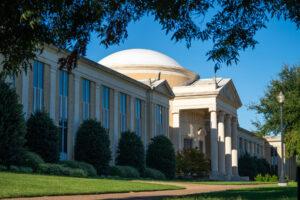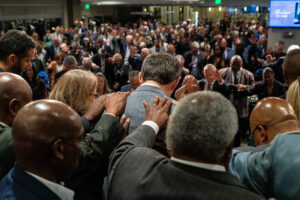
PHOENIX (BP) — Kirundi is one of four languages spoken during worship services at First Southern Baptist Church of Phoenix. It would be five languages, but after 20 years the Vietnamese congregation recently bought its own building and moved about two miles away.
Kirundi is a language spoken in central Africa.
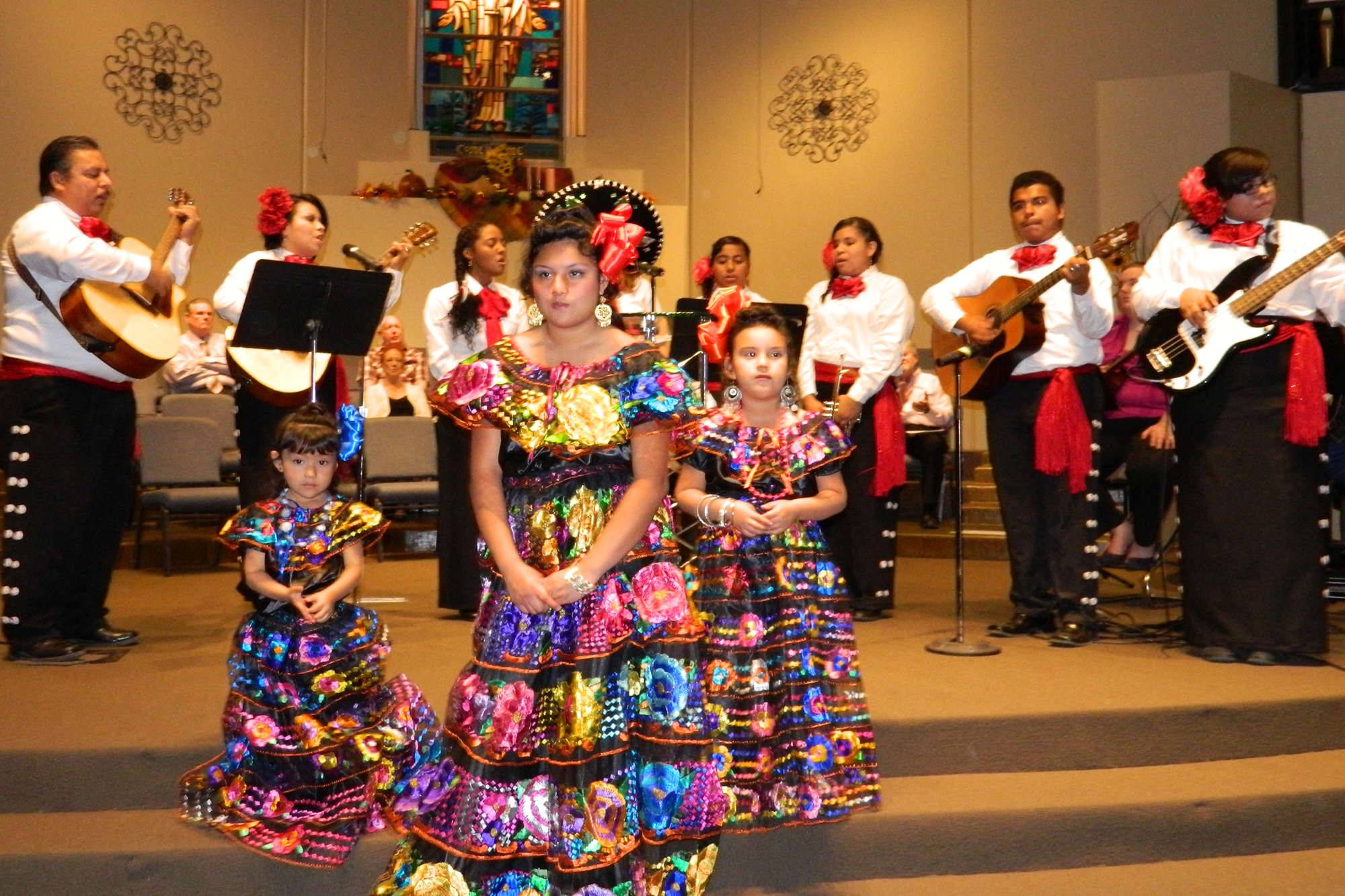 “We are one church with many groups, a thriving, healthy, multicultural church community,” said Stephen Hayes, pastor of First Southern Baptist since 2012. “We definitely are an inner-city church. Though not an Anglo church, we’re an English-language church. Our growth is mainly through our ethnic outreach.”
“We are one church with many groups, a thriving, healthy, multicultural church community,” said Stephen Hayes, pastor of First Southern Baptist since 2012. “We definitely are an inner-city church. Though not an Anglo church, we’re an English-language church. Our growth is mainly through our ethnic outreach.”
About eight years ago, refugees from Tanzania began arriving in the area and congregated in central Phoenix. They were joined by refugees from other war-torn nations in central Africa, and today a group of about 110 meets at the church for Sunday worship.
 Also meeting as church plants are a Hispanic contingent of about 100 and a Burmese group of about 150 from Myanmar, formerly known as Burma. Each group meets separately, in their heart languages, for Bible study and worship in their own space at First Southern Baptist. Once a month, all groups meet as one for an English-language service in the church’s 500-seat main worship center.
Also meeting as church plants are a Hispanic contingent of about 100 and a Burmese group of about 150 from Myanmar, formerly known as Burma. Each group meets separately, in their heart languages, for Bible study and worship in their own space at First Southern Baptist. Once a month, all groups meet as one for an English-language service in the church’s 500-seat main worship center.
Local and international opportunities, giving to Southern Baptist missions through the Cooperative Program and a longstanding commitment to church planting provide many discussion points for those engaged in the church’s yearlong vision planning process.
Serving immigrants
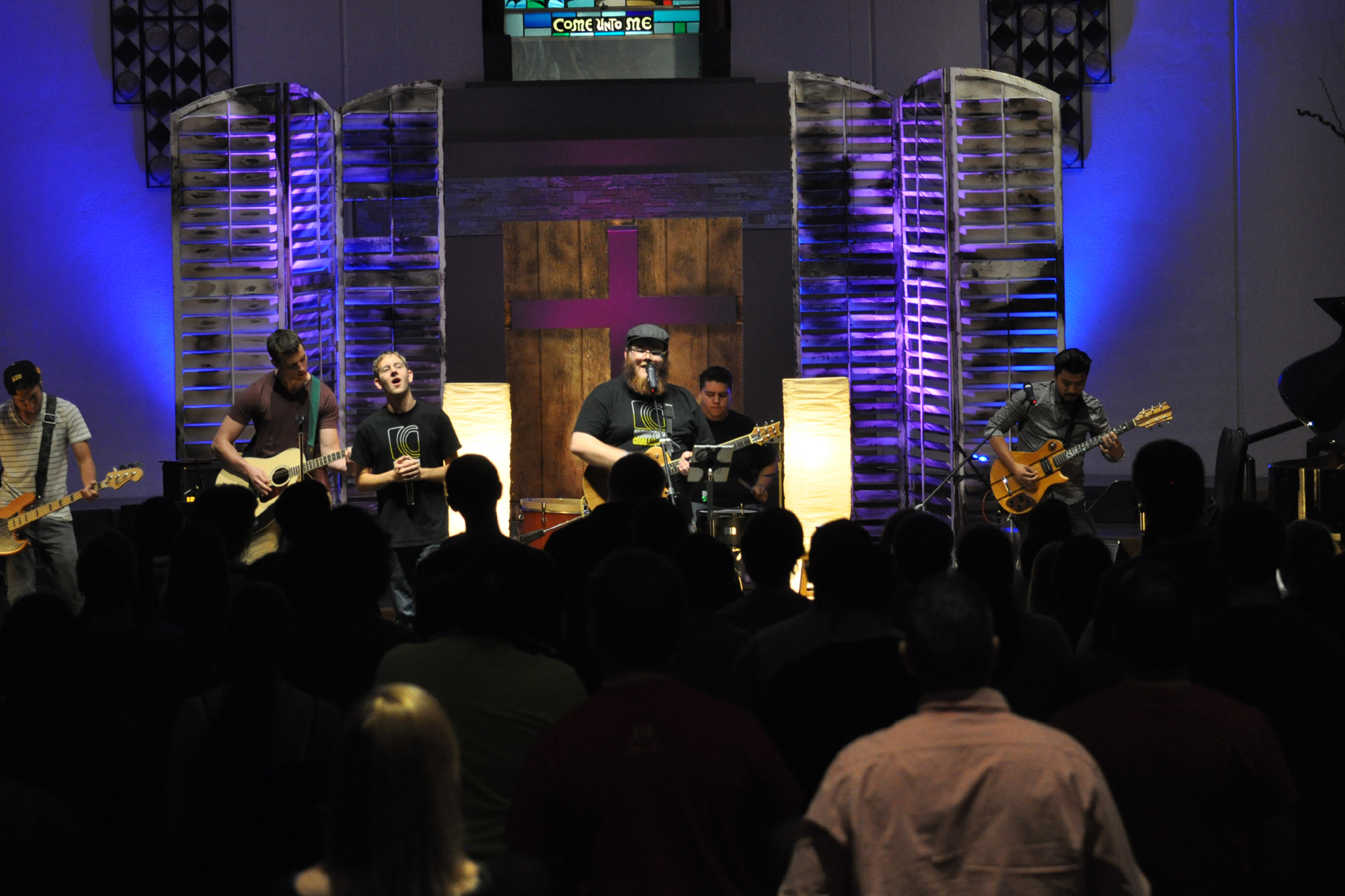 “Definitely we are in an area with a lot of immigrants,” Hayes said. “There are other immigrants in our area and we’re asking, ‘What are the next groups we need to focus on?'”
“Definitely we are in an area with a lot of immigrants,” Hayes said. “There are other immigrants in our area and we’re asking, ‘What are the next groups we need to focus on?'”
To help provide for physical needs, the church operates an Open Arms Ministry that people can come to every Wednesday for food and clothing, along with an abundance of evangelism. About 60 families show up each time the doors are open, the pastor said.
An active missions committee and endowed missions fund enable strong international mission trips, including Vacation Bible Schools in Mexico, house-church planting in East Africa and an English as a Second Language outreach in East Asia.
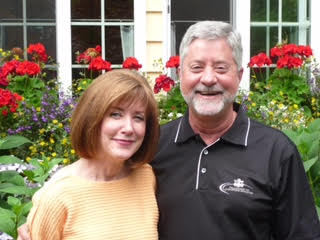 First Southern Baptist shares its facilities with fellow Southern Baptists in ministry. Arizona Baptist Children’s Services and Family Ministries operates its New Life Pregnancy Center at the church, providing ultrasounds, parenting advice and baby supplies. Grand Canyon University, next door, operates its music program in church facilities. About 50 young college women meet at the church each week with a local women’s ministry leader, Hayes said. And an evangelical Anglican group of about 15 people gather once a week at the church.
First Southern Baptist shares its facilities with fellow Southern Baptists in ministry. Arizona Baptist Children’s Services and Family Ministries operates its New Life Pregnancy Center at the church, providing ultrasounds, parenting advice and baby supplies. Grand Canyon University, next door, operates its music program in church facilities. About 50 young college women meet at the church each week with a local women’s ministry leader, Hayes said. And an evangelical Anglican group of about 15 people gather once a week at the church.
Giving to the Cooperative Program
More than 20 percent of First Southern Baptist’s budget is set aside for missions, including 11 percent of undesignated income through the Cooperative Program, Southern Baptists’ way of supporting local, national and international missions and ministries.
“There’s no way we as a church could send and support a missionary overseas or even locally without the aid of churches combining, so it makes sense to partner with the Cooperative Program, with other Southern Baptists,” Hayes said. “With the Cooperative Program, we can do more together.”
The church’s Burmese ministry is a CP product, the pastor said. The North America Mission Board trained a Burmese pastor living in San Diego, a refugee port city. When many of the Burmese moved away, NAMB partnered with First Southern Baptist to provide the pastor three years of financial support in Phoenix.
“The Cooperative Program gives us so much more leverage,” Hayes said. “It’s [the Burmese church] a huge success story. In less than two years it has grown from 25 to 150 with William Lo as pastor.”
Hayes also saw CP at work during the 27 years he and his wife Marcia served as missionaries with the International Mission Board. The Hayeses first served 10 years in South Korea until the country passed the “2 percent evangelized” benchmark and then served 17 years in the Middle East.
The IMB’s outreach to drill wells there opened the door for Wycliffe translation specialists to “put the Bible in the language of the [people],” Hayes said. “When we went there, there were no Christians, and now a good number are Christians. That’s what the Cooperative Program does.”
Planting churches
On a wall in the front foyer of First Southern Baptist, a tree is painted that shows the church’s many progeny, so many Hayes said he has never taken the time to count. “Our church must continue expanding its church planting efforts,” he said.
They have three at the present time — a Valley Life Church partnership for college students, the Burmese congregation and the Downtown Phoenix Church, also known as DTPHX, led by Jim Helman.
DTPHX is “a church on the go,” Hayes said. “They don’t have a building. … They do a lot with Bible studies and being part of the fabric of life downtown.”
Downtown Phoenix is a draw for the city’s gay, lesbian and transgender population, Hayes said. “It’s a different setting than the suburbs, and a different mentality. I consider Jim Helman to be a true missionary. He’s not building a building. He’s doing true missionary work.”
Vision planning
Eleven First Southern Baptist members meet one full day a month with three coaches from the Arizona Southern Baptist Convention to “recognize our past, understand our present circumstances and challenges, and develop our vision for the future,” Hayes said.
It’s a yearlong vision planning process to help the church minister to its aging Anglo congregation and its expanding ethnic and refugee congregations which “could not financially carry the weight of maintaining this campus,” the pastor said.
Another issue could be expressed in Hayes’ proposed doctoral project: “How to raise cross-cultural awareness in our multicultural church setting and value each other, all in the name of Christ.”
“These are big issues we’re working on,” Hayes said. “We want to make cross-cultural awareness a bridge for the Gospel, not a barrier.”





